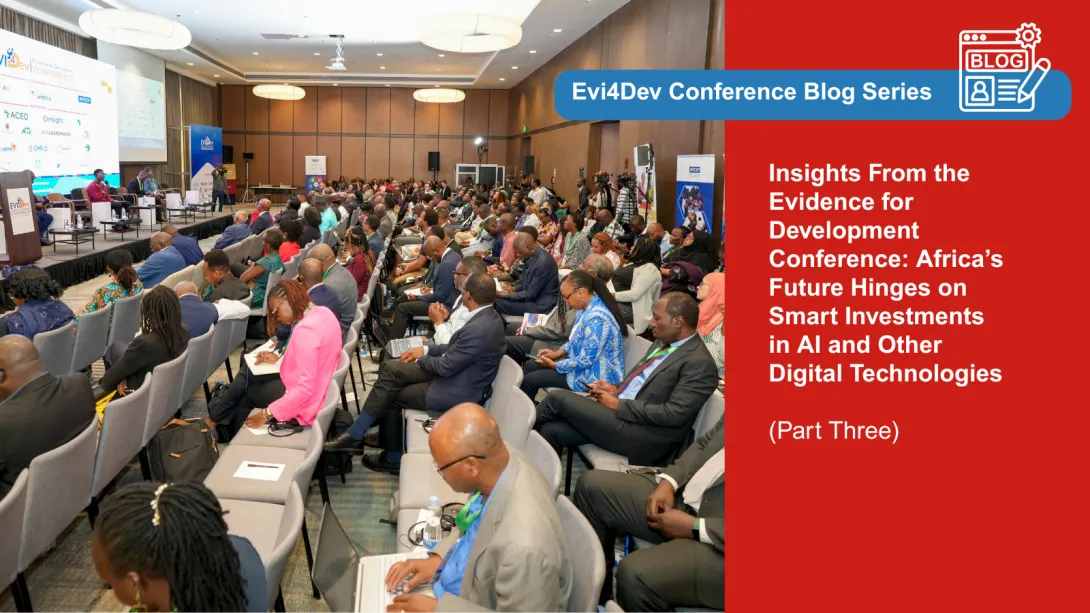
By Derick Ngaira
Artificial intelligence (AI) and other digital technologies are reshaping how societies function across the world. For Africa, these tools hold immense potential to solve deep-rooted development challenges, if we act decisively to harness them. At the inaugural Evidence for Development (Evi4Dev) Conference, stakeholders explored how AI and digital innovations are already being applied in sectors like healthcare, education, agriculture, and public service delivery. Participants agreed that Africa must move beyond pilot projects, and invest in systems that unlock the full value of digital transformation.
Across the continent, there are already promising signs. AI models are being used to track disease outbreaks, analyse education data to improve learning outcomes, and enhance agricultural productivity through predictive analytics. However, these innovations are often scattered, underfunded, or not scaled beyond the pilot stage. To change this, governments and partners need to establish governance frameworks that provide the foundation for safe, inclusive, and innovative digital ecosystems.
Regulation should not stifle innovation, but it must ensure transparency, protect users, and build public trust. A key takeaway from the Evi4Dev discussions was the urgent need for African governments to craft enabling policies and legal safeguards that guide AI development in a way that reflects African values and realities. A homegrown AI agenda must also champion data sovereignty, ethical standards, and citizen-centric design.
Yet regulation alone won’t drive digital transformation. Developers of AI and digital tools must ground their work on pressing concerns and challenges. Too often, innovation is disconnected from real-world needs. Moreover, if developers can demonstrate how AI models improve service delivery, reduce costs, or save lives, they will make a stronger case for adoption by public institutions and investors. This calls for inclusive research, clear communication of results and rigorous monitoring.
Public health is a case in point. There was consensus at the conference that AI and digital tools can complement traditional health systems, particularly in diagnostics, disease surveillance, and patient monitoring. Integrating AI-driven diagnostics into routine health workflows could revolutionise how the continent responds to both infectious and non-communicable diseases. But this requires strong institutional commitment, intersectoral collaboration, and reliable funding.
Skills development is another cornerstone. Many African countries face a digital skills gap that threatens to widen inequality. Governments must invest in building local AI talent and promoting digital literacy. Training should start early in schools and continue through universities, technical institutions, and professional development programmes. A digitally literate population is not only more employable—it is also better equipped to use digital tools.
Finally, Africa’s digital innovators must be empowered to scale. Far too many brilliant models fail to leave the lab or startup hub. Developers need support to attract investment, commercialise their products, and create jobs. Governments can incentivise this through procurement policies that favour local innovation and through platforms that connect developers with markets and funders.
The Evi4Dev Conference provided valuable momentum. Now, the challenge is to translate these insights into policies, programmes, and partnerships that ensure Africa doesn’t just consume digital innovation, but leads it.
Part 4 of the blog series focuses on why domestic resources must lead the way in financing Africa’s future.

